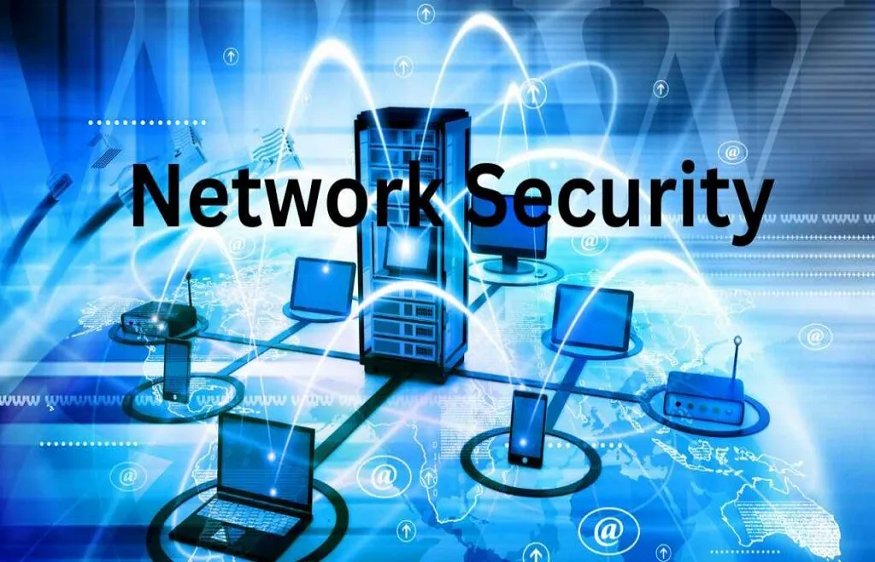Choosing the best network security solutions company is essential in today’s digital environment to protect the infrastructure and important data of your firm. Because cyber threats are getting more complex, choosing the right security partner may make the difference between systems that are well protected and those that are not. This thorough article will take you through crucial steps to help you assess and select the network security solutions provider that best suits your needs.
1. Assess Their Industry Experience and Track Record
The first step in assessing possible network security providers is to look at their track record and industry experience. Seek out businesses that have a history of effectively safeguarding businesses that are comparable to yours in terms of size, breadth, and industry. Case studies, customer endorsements, and specific instances of how they have addressed security issues should all be used by a reputable security firm to showcase their experience. Take note of their team’s credentials, length of operation, and familiarity with the particular compliance standards of your sector. Although more recent businesses may bring creative solutions, there is a lot of benefit to collaborating with suppliers that have experienced a range of cyberthreats and modified their approaches accordingly. Their proven track record of success may be quite helpful in safeguarding your company from both established and new security risks.
2. Evaluate Their Response Time and Support Services
Your relationship with a security solutions supplier may be made or broken by the caliber and accessibility of their technical assistance. Excellent security firms provide round-the-clock assistance with well-defined reaction times for various security incident severity levels. They should offer a variety of communication channels, such as phone, email, and live chat assistance, so that you may get in touch with them in an emergency using your chosen manner. The support staff have to be competent, professional, and able to communicate complicated security problems in simple terms. Examine their escalation processes, issue response policies, and typical resolution timeframes as well. A trustworthy supplier will show their dedication to maintaining the security and functionality of your systems around-the-clock by having a well-documented support structure and being open and honest about their service level agreements (SLAs).
3. Review Their Technology Stack and Innovation Approach
The security landscape is always changing, therefore your provider of choice needs to keep ahead of new threats by constantly innovating and advancing technologies. Check their technological stack to make sure they are using up-to-date, reliable solutions that can successfully defend against contemporary cyberthreats. A capable supplier should combine state-of-the-art technology with tried-and-true security techniques, upgrading their products often to fix emerging flaws. They should exhibit how they integrate new technology into their service offerings and show that they have a thorough awareness of the latest security trends. Choose service providers who make R&D investments, engage in industry forums, and preserve alliances with top tech companies. Their innovation strategy should strike a balance between the stability and dependability of well-established systems and the deployment of new security technology.
4. Understand Their Pricing Structure and Value Proposition
When choosing a network security service, a clear and organized pricing structure is crucial. Seek out businesses who provide detailed, transparent pricing that is free of unforeseen expenses or hidden charges. They have to be able to thoroughly describe their price policy, outlining both the services that are included by the base package and those that may be subject to further fees. The supplier has to supply adjustable price plans that may grow with your company and adapt to your evolving security requirements. Cost is crucial, but don’t only concentrate on the lowest price; consider the value offer as a whole. Think about things like the range of services they provide, the caliber of their assistance, the team’s experience, and their capacity to satisfy your unique security needs while staying within your means.
5. Examine Their Customization and Scalability Options
As your company expands and encounters new difficulties, your security requirements will probably change. Select a supplier who can grow their services to meet your evolving needs and offers solutions that can be customized. Instead of promoting a one-size-fits-all strategy, they ought to show flexibility in customizing their security solutions to your unique situation. The supplier needs to be skilled in scaling security solutions for businesses of all sizes and levels of complexity. Examine their capacity to interface with your current systems, add or change services as necessary, and assist in the expansion of your company. Their products have to be sufficiently flexible to enable simple additions or changes without necessitating a total redesign of your security setup.
6. Verify Their Security Testing and Monitoring Capabilities
Continuous monitoring and thorough security testing are essential elements of every successful security system. Strong testing services, such as frequent vulnerability assessments, penetration tests, and security audits, should be provided by the supplier. They should have advanced threat detection and alarm technologies in place, as well as round-the-clock, real-time network surveillance. Seek out suppliers who detect possible security risks before they become significant issues by using automated techniques and advanced analytics. They should be able to give thorough reports on their monitoring efforts and have clear protocols in place for dealing with security problems. Additionally, the provider should show how they keep up with emerging security concerns and modify its testing and monitoring strategies accordingly.
7. Consider Their Client Communication and Reporting Practices
Effective security cooperation requires thorough reporting and efficient communication. The top security companies keep lines of communication open with their customers and send out thorough updates on security events, developments, and status on a regular basis. They ought to provide adaptable reporting choices that satisfy the demands of your company and management specifications. Seek out suppliers who maintain openness on security events and resolutions, carry out frequent security assessments, and offer thorough documentation of their operations. In addition to being technical enough to benefit IT teams, their reporting should be understandable enough for stakeholders who are not technical to comprehend their organization’s security position.
Conclusion
A number of important considerations must be carefully taken into account when choosing a data engineering solutions firm. You may make an educated decision that supports the security requirements and corporate goals of your company by assessing possible suppliers using these crucial criteria. Keep in mind that the greatest supplier isn’t always the one with the newest technology or the cheapest costs; rather, it’s the one that provides the most complete and appropriate answer for your particular circumstance.

